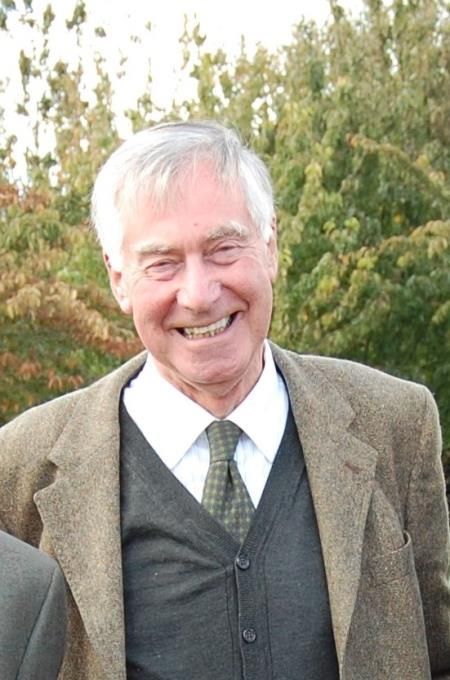1980
Our President in 1980/81 was:
W.E.K. Anderson
He proposed the Toast to Sir Walter at our 73rd Annual Dinner on Friday 6th March 1981 in The North British Hotel
Download the [transcript] or read the [bulletin]
Summary of the Speech:
Sir Eric Anderson’s address is structured around three compelling reasons for continuing to read Sir Walter Scott: Scott as a novelist, Scott as a Scot, and Scott the man. It is a sophisticated, often humorous, and deeply insightful tribute.
1. Scott as a Novelist
- Anderson resists a literary analysis of Scott’s novels, noting that others before him have done this ably, and citing a request for brevity.
- Nevertheless, he affirms Scott’s greatness as a novelist: free from literary rules, embracing a broad stylistic spectrum from Fielding to Austen.
- He praises Scott’s storytelling, describing his work as sane, commonsensical, and resonant with a wide vision of life.
- Scott’s prose—especially in his Scottish characters—is compared to Chaucer and Shakespeare for its muscularity and music.
2. Scott as a Scot
- Scott’s Scottish identity is key. He was proud of his Berwickshire burr and his use of “Scotch” as a vigorous, authentic language.
- Anecdotes include his miswritings of “date” and “debt” due to pronunciation, and his substitution of “Perils” for “pearls” when describing Maltese jewellery.
- His use of Scots is not decorative but natural and effective—never forced, unlike the “Kailyard” or “Lallans” writers.
- Anderson describes the wide-reaching cultural effect of The Lady of the Lake and Scott’s influence on European perceptions of Scotland, including Parisian fashion.
- The 1822 visit of George IV to Scotland, orchestrated by Scott, made tartan a national symbol. The detailed bill for the King’s Highland dress adds humour and extravagance.
- Characters like Andrew Fairservice, Jonathan Oldbuck, and Baillie Jarvie reflect authentic Scots types. Saunders Fairford, modelled on Scott’s father, embodies Edinburgh rectitude.
3. Scott the Man
- Anderson praises the unprecedented archival access we have to Scott’s life: letters, journals, and contemporary accounts allow us to understand him intimately.
- He dismisses the idea of scandal or sensationalism in Scott’s correspondence. Instead, it reveals a man of integrity, humour, generosity, and sensibility.
- Scott’s famed anonymity is explored as a sign of deep sensitivity. He dreaded criticism—describing it as “internment in an ants’ nest”—and adopted anonymity to preserve peace of mind.
- The Journal reveals his emotional depth and imagination: a man moved by beauty, full of daydreams, and sensitive to the feelings of others.
- His family saw little of his inner world. His outer self was a practical man of action, public duty, and kindness.
- Even in awkward family circumstances (e.g., dealing with the overbearing Mrs Jobson), Scott maintained tact and restraint.
- Anderson ends by portraying Scott as a man whose life modelled the virtues of sensibility, effort, public service, and kindness—a figure not just to admire but to love.
Interesting Points Worth Noting
- Humour & Humanity: The speech is filled with subtle humour, especially in family anecdotes and descriptions of Scott’s character portrayals.
- Sociocultural Commentary: The discussion on tartan, Edinburgh values, and Scott’s role in shaping Scottish identity offers a rich cultural lens.
- Psychological Insight: Anderson perceptively explores Scott’s inner life—his fears, stoicism, and literary sensibility—as revealed through his Journal.
- Stylistic Elegance: This is not just a toast but a finely crafted essay, demonstrating Anderson’s rhetorical skill and personal admiration for Scott.
Download the [transcript] or read the [bulletin]

Subsidiary Toasts
After the toast to The Queen had been honoured, the Chairman proposed “The City of Edinburgh”, to which the Rt. Hon. Tom Morgan, Lord Provost of the City of Edinburgh District Council replied.
The toast of “Her Majesty’s Forces” was proposed by Mr. Roderick McFarquhar, and the reply was made by Vice-Admiral Sir Thomas Baird, K.C.B. Flag Officer, Scotland and Northern Ireland.
The toast of the President was then proposed by Dr. W.J. Lyon Dean, Chairman of Council.


